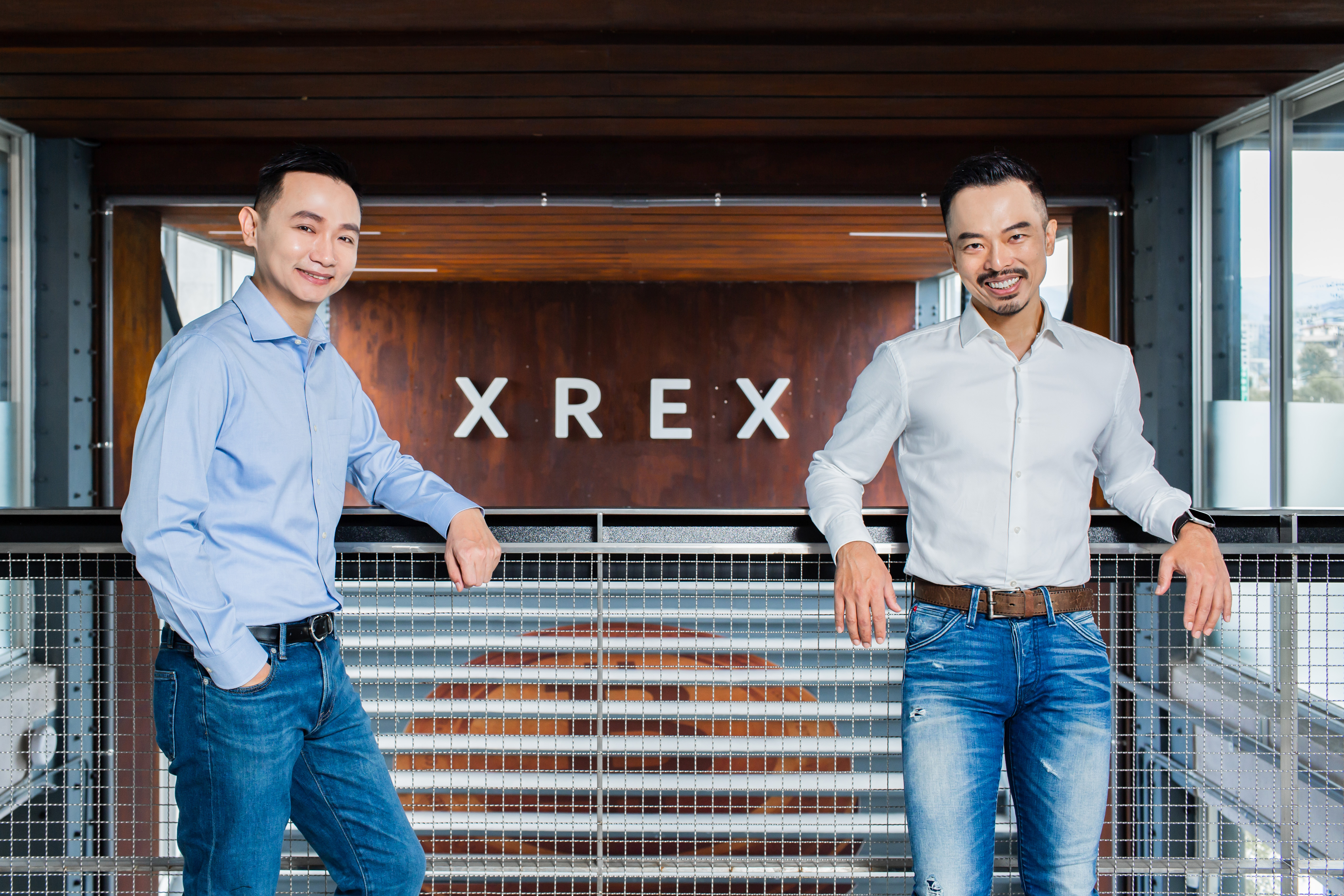- August 23, 2021
- by:
- in: Blog
The Station is a weekly newsletter dedicated to all things transportation. Sign up here — just click The Station — to receive it every weekend in your inbox. Hello readers: Welcome to The Station, your central hub for all past, present and future means of moving people and packages from Point A to Point B. I’m
The Station is a weekly newsletter dedicated to all things transportation. Sign up here — just click The Station — to receive it every weekend in your inbox.
Hello readers: Welcome to The Station, your central hub for all past, present and future means of moving people and packages from Point A to Point B. I’m handing the wheel over to reporters Aria Alamalhodaei and Rebecca Bellan.
Before I completely leave though, I have to share, the Nuro EC-1, a series of articles on the autonomous vehicle technology startup reported by investigative science and tech reporter Mark Harris with assistance from myself and our copy editorial team. This deep dive into Nuro is part of Extra Crunch’s flagship editorial offerings.
As always, you can email me at kirsten.korosec@techcrunch.com to share thoughts, criticisms, opinions or tips. You also can send a direct message to me at Twitter — @kirstenkorosec.
Micromobbin’

New York City finally launched its long-awaited scooter pilot in the Bronx this past week. Over 90 parking corrals specifically for e-scooters have been installed across the borough, but residents can also park in unobstructive locations on the sidewalk. Bird, Lime and Veo were the operators chosen for the pilot, each bringing their own sets of strengths.
Bird says it intends to focus on the mobility gap in the Bronx and will use its AI drop engine to ensure equitable deployment across all neighborhoods in the pilot zone. Veo is focused on safety and accessibility, bringing its Astro VS4, the first e-scooter with turn signals, to the mix, as well as its Cosmo, a seated e-scooter. Lime is also focusing on accessibility, with its Lime Able program, which offers an on-demand suite of adaptive vehicles. Lime also highlighted a safety quiz it will require new riders to take before hopping on a vehicle.
All three companies have promised to partner with community organizations to hire locally as well as to offer discounted pricing for vulnerable groups.
Big week for Bird
Not only has Bird officially launched in NYC, but it was also awarded a 12-month permit to operate 1,500 scooters in San Francisco. Well, technically it’s Scoot that got the permit, but Scoot is owned by Bird, and was kind of Bird’s backdoor way into the city. Last month, the SFMTA asked Scoot to halt its operations just as the fresh round of scooter permits were kicking off because the company was implementing its fleet manager program with unauthorized subcontractors.
On Friday, after careful evaluation of Scoot’s application, SFMTA determined Scoot has qualified for a permit to operate. Scoot intends to have its vehicles back on the roads in the coming weeks.
Bird also officially launched its consumer e-bike, dubbed the Bird Bike (which I think is also the name of their shared e-bike). Bird hasn’t had the easiest time with profitability, and really, not many scooter companies have, so this is a chance for Bird to diversify, get a piece of the $68 billion e-bike sales pie and create more brand awareness across marketplaces. The bike costs $2,229 and consumer sales will likely make up about 10% of Bird’s revenue going forward, per the company’s S-4 filing.
Bird (and Scoot) are now integrated with Google Maps. So is Spin, as of this week. More integrations like these, as we saw a couple weeks ago with Lime joining Moovit, demonstrate how shared micromobility is becoming more integrated with the way we think about moving around cities and planning our journeys. I heartily welcome such integrations.
Finally, Alex Wilhelm dug into new financial data released by Bird. The tl;dr: the quarterly data shows an improving economic model and a multiyear path to profitability. However, that path is fraught unless a number of scenarios all work out in concert and without a glitch, Wilhelm reports.
— Rebecca Bellan
Deal of the week

Imagine a future in which drivers don’t charge their electric vehicles but instead swap out the batteries at small, roadside pods. That’s the future Ample is imagining, and this week it announced a fresh $160 million funding round to scale its operations.
The internationally funded Series C was led by Moore Strategic Ventures with participation from PTT, a Thai state-owned oil and gas company, and Disruptive Innovation Fund. Existing investors Eneos, a Japanese petroleum and energy company, and Singapore’s public transit operator SMRT also participated. Ample’s total funding is now $230 million.
It’s an interesting idea but one that will require considerable buy-in from automakers to make it a reality — for example, by selling vehicles with either a standard battery or Ample’s battery system pre-built in. But according to Ample co-founders John de Souza and Khaled Hassounah, it wouldn’t be all that complicated for OEMs to separate the battery from the car.
“The marketing departments at the OEMs want to tell you that … ‘This is a super-duper battery that is very well integrated with the car; there’s no way you can separate it,’ ” Hassounah said. “The truth of the matter is they’re built completely separately and so true for almost — not almost, for every battery in the car, including a Tesla.
“Since we’ve built our system to be easy to interface with different vehicles, we’ve abstracted the battery component … from the vehicle,” he added.
Other deals that got our attention this week …
AEye, the lidar startup, completed its reverse merger with special purpose acquisition company CF Finance Acquisition Corp. III. AEye is now a publicly traded company that trades on the Nasdaq exchange.
Canada Drives, an online car shopping and delivery platform, announced $79.4 million ($100 million CAD) in Series B funding that it will use to expand its service across Canada. The company is going to use its recent funding to keep enhancing the product, grow its inventory in existing and new markets and hire around 200 people over the next year, particularly in product development.
DigiSure, a digital insurance company that caters to modern mobility form factors like peer-to-peer marketplaces, is officially coming out of stealth to announce a $13.1 million pre-Series A funding round. The startup will use the funds to hire more than 50 engineers, data scientists, business development, insurance and compliance specialists, as well as scale into new industry verticals and across into Europe.
High Definition Vehicle Insurance Group, a commercial auto insurance company that is initially focused on trucking, raised $32.5 million in Series B funding round led by Weatherford Capital, with new investors Daimler Trucks North America and McVestCo, and continued participation from Munich Re Ventures, 8VC, Autotech Ventures and Qualcomm Ventures LLC.
RepairSmith, a mobile auto repair service that sends a mechanic right to the driver’s home, raised $42 million in fresh funding with the aim of expanding to all major metros by the end of 2022. The company is looking to disrupt auto servicing and repair, a massive industry that hasn’t seen much change in the past 40 years.
REE Automotive was awarded $17 million from the UK government as part of a $57 million investment, coordinated through the Advanced Propulsion Centre. The investment, the company said, is in line with the UK government’s ambition to accelerate the shift to zero-emission vehicles.
Swvl, a Dubai-based transit and mobility company, will be expanding into Europe and Latin America after it acquired a controlling interest in Shotl. Shotl, which is in 22 cities across 10 countries, matches passengers with shuttles and vans heading in that same direction. The company partners with governments and municipalities to provide mobility solutions for populations that are underserved by traditional mass transit options. While Swvl declined to share the financials of the transaction, a spokesperson told TechCrunch that the company’s “footprint is being doubled by this acquisition.”
Xos Inc., a manufacturer of electric Class 5 to Class 8 commercial vehicles completed its business combination with NextGen Acquisition Corporation. As a reuslt, Xos made its public debut on the Nasdaq exchange.
Notable reads and other tidbits

Advanced Driver Assistance Systems
Regarding Tesla investigations, when it rains it pours. First, the National Highway Traffic and Safety Administration opened a preliminary investigation into Tesla’s Autopilot advanced driver assistance system, citing 11 incidents in which vehicles crashed into parked first responder vehicles while the system was engaged.
The Tesla vehicles involved in the collisions were confirmed to have either have had engaged Autopilot or a feature called Traffic Aware Cruise Control, according to investigation documents posted on the agency’s website. Most of the incidents took place after dark and occurred despite “scene control measures,” such as emergency vehicle lights, road cones and an illuminated arrow board signaling drivers to change lanes.
A few days later, Senators Edward Markey (D-Mass.) and Richard Blumenthal (D-Conn.) asked the new chair of the Federal Trade Commission to investigate Tesla’s statements about the autonomous capabilities of its Autopilot and Full Self-Driving systems. The senators expressed particular concern over Tesla misleading customers into thinking their vehicles are capable of fully autonomous driving.
“Tesla’s marketing has repeatedly overstated the capabilities of its vehicles, and these statements increasingly pose a threat to motorists and other users of the road,” they said. “Accordingly, we urge you to open an investigation into potentially deceptive and unfair practices in Tesla’s advertising and marketing of its driving automation systems and take appropriate enforcement action to ensure the safety of all drivers on the road.”
Autonomous Vehicles
Waymo, Alphabet’s self-driving arm, is seriously scaling up its autonomous trucking operations across Texas, Arizona and California. The company said it was building a dedicated trucking hub in Dallas and partnering with Ryder for fleet management services.
The Dallas hub will be a central launch point for testing not only the Waymo Driver, but also its transfer hub model, which is a mix of automated and manual trucking that optimizes transfer hubs near highways to ensure the Waymo Driver is sticking to main thoroughfares and human drivers are handling first and last mile deliveries.
Electric vehicles
Canoo is expecting 25,000 units out of its manufacturing partner VDL Nedcar’s facility by 2023, CEO Tony Aquila said during the company’s quarterly earnings call.
Year over year, Canoo upped its workforce from 230 to 656 total employees, 70% of which are hardware and software engineers. The startup’s operating expenses have increased from $19.8 million to $104.3 million YOY, with the majority of that increase coming from R&D.
Ford, Stellantis, Toyota and Volkswagen are among the carmakers this week that have announced production cuts in response to the ongoing global shortage of semiconductors. It’s been a grim week.
A brief run-down: Toyota said it anticipated a production drop of anywhere from 60,000-90,000 vehicles across North America in August. Then Ford joined the chorus, saying it would temporarily close its F-150 factory in Kansas City. Volkswagen told Reuters it couldn’t “rule out further changes to production” in light of the chip shortage. And finally, Stellantis is halting production at one of its factories in France.
Tesla unveiled what it’s calling the “D1” computer chip to power its advanced AI training supercomputer, Dojo, at its AI Day on Thursday. According to Tesla director Ganesh Venkataramanan, the D1 has GPU-level compute with CPU connectivity and twice the I/O bandwidth of “the state of the art networking switch chips that are out there today and are supposed to be the gold standards.”
Venkataramanan also revealed a “training tile” that integrates multiple chips to get higher bandwidth and an incredible computing power of 9 petaflops per tile and 36 terabytes per second of bandwidth. Together, the training tiles compose the Dojo supercomputer.
But there was more, of course. CEO Elon Musk also unveiled that the company is developing a humanoid robot, with a prototype expected in 2022. The bot is being proposed as a non-automotive robotic use case for the company’s work on neural networks and its Dojo advanced supercomputer.
Reality check: Tesla is not the first automaker, or company, to dip its toe into humanoid robot development. Honda’s Asimo robot has been around for decades, Toyota and GM have their own robots and Hyundai recently acquired robotics company Boston Dynamic.
The full rundown of Tesla’s AI Day can be found here.
In-car tech
General Motors and AT&T will be rolling out 5G connectivity in select Chevy, Cadillac and GMC vehicles from model year 2024, in a boost that the two companies say will bring more reliable software updates, faster navigation and downloads and better coverage on roadways.
5G technology has generated a lot of hype for its promises to boost speed and reduce latency across a range of industries, a next-gen tech that everyone thought would change the world far sooner than now. That hasn’t happened (yet), in part because network rollout was much slower than people anticipated. So this announcement can be taken as a clear signal that, at the very least, AT&T thinks its 5G network will be mature enough to handle “millions” of connected vehicles by 2024.
Ride-hailing
RubiRides, a new ride-hailing company focuses on transporting kids, launched in the Washington D.C. metro area. The ride-hailing service is designed for children ages 7 and older. But the service also offers ride services for seniors and people with special needs. The company was founded by Noreen Butler, who was inspired to start the company after searching for transportation to support the busy schedules of her children.











